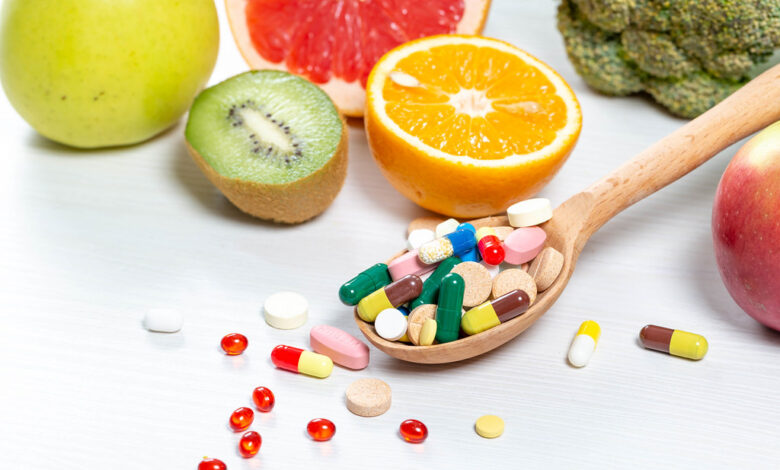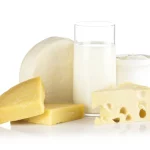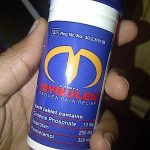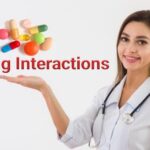8 Dangerous Food-Drug Interactions You Should Know

Food and drugs are two essential components of our daily life. Food is a source of energy, nutrition, and pleasure, while drugs are prescribed or taken to alleviate symptoms, cure diseases or improve health. Although food and drugs are meant to be consumed separately, sometimes, they can interact in harmful ways leading to food-drug interactions (FDIs).
FDIs are complex and can occur at any stage of the drug’s metabolism, absorption, distribution, or elimination. These interactions can reduce the efficacy of the drug, increase the risk of adverse effects, and even lead to life-threatening complications. In this article, we will discuss some of the most dangerous FDIs, their mechanisms, and ways to prevent them.
1. Grapefruit Juice and Medications
Grapefruit juice is a popular drink that is high in vitamin C and antioxidants. However, it can interact with certain medications, leading to toxic effects. Grapefruit juice contains furanocoumarins, which inhibit the cytochrome P450 (CYP) enzyme system in the liver. CYP enzymes are responsible for the metabolism of many medications, and inhibition of CYP enzymes can lead to higher levels of the drug in the body, leading to toxicity.
Some of the drugs that can interact with grapefruit juice include statins, which are used to lower cholesterol levels, benzodiazepines, which are used to treat anxiety, and some calcium channel blockers, which are used to treat hypertension. When these drugs are taken with grapefruit juice, their serum levels can increase by up to threefold, leading to adverse effects such as muscle pain, liver toxicity, and central nervous system depression.
To prevent grapefruit juice and drug interactions, patients should avoid drinking grapefruit juice when taking medications, especially those metabolized by the CYP system. If patients cannot avoid grapefruit juice, they should consult their doctor or pharmacist to adjust the dosage or switch to an alternative medication.
2. Alcohol and Medications
Alcohol is a widely consumed beverage that can interact with medications, leading to adverse effects. Alcohol can affect the absorption, metabolism, and elimination of drugs, leading to altered drug levels in the body. Alcohol can also interact with drugs by enhancing or reducing their effects, leading to unpredictable outcomes.
Some of the drugs that can interact with alcohol include non-steroidal anti-inflammatory drugs (NSAIDs), which are used to treat pain and inflammation, antidepressants, which are used to treat depression, and anticoagulants, which are used to prevent blood clots. When these drugs are taken with alcohol, they can lead to gastrointestinal bleeding, liver toxicity, and increased risk of bleeding, respectively.
To prevent alcohol and drug interactions, patients should avoid drinking alcohol when taking medications, especially those with a high risk of interaction. Patients should also be aware of the potential for alcohol and drug interactions when starting a new medication and should consult their doctor or pharmacist before consuming alcohol.
3. Tyramine and Monoamine Oxidase Inhibitors (MAOIs)
Tyramine is a naturally occurring amino acid found in many foods, including aged cheeses, fermented meats, and soy products. Tyramine is metabolized by the monoamine oxidase (MAO) enzyme system in the liver. MAOIs are a class of medications used to treat depression, anxiety, and Parkinson’s disease. MAOIs inhibit the MAO enzyme system, leading to higher levels of tyramine in the body. High levels of tyramine can lead to a hypertensive crisis, a life-threatening condition characterized by severe headaches, nausea, and increased blood pressure.
To prevent tyramine and MAOI interactions, patients should avoid consuming foods high in tyramine when taking MAOIs. Foods to avoid include aged cheeses, cured meats, fermented soy products, and some alcoholic beverages. Patients should also inform their healthcare provider if they are taking MAOIs and should not start a new medication or supplement without consulting their doctor or pharmacist.
4. Leafy Green Vegetables and Medications
Warfarin is an anticoagulant medication used to prevent blood clots. Warfarin works by inhibiting the synthesis of vitamin K-dependent clotting factors in the liver. Vitamin K is a fat-soluble vitamin found in many foods, including leafy green vegetables, broccoli, and soybeans. When vitamin K intake is high, it can counteract the effects of warfarin, leading to reduced anticoagulant activity and increased risk of blood clots.
To prevent vitamin K and warfarin interactions, patients taking warfarin should maintain a consistent intake of vitamin K-rich foods and should not make any sudden changes in their diet without consulting their doctor or pharmacist. Patients should also inform their healthcare provider of any changes in their diet or supplement regimen.
5. Dairy Products and Antibiotics
Dairy products such as milk, cheese, and yogurt contain calcium, which can interfere with the absorption of some antibiotics. Antibiotics are medications used to treat bacterial infections, and their absorption can be affected by the presence of calcium in the stomach. When antibiotics are taken with dairy products, their absorption can be reduced, leading to lower serum levels and reduced efficacy.
Some of the antibiotics that can be affected by calcium include tetracyclines, which are used to treat acne and respiratory infections, and fluoroquinolones, which are used to treat urinary tract infections. To prevent dairy product and antibiotic interactions, patients should avoid consuming dairy products two hours before or after taking antibiotics. Patients should also consult their doctor or pharmacist if they have any questions about the timing of their medications.
6. High-Fat Meals and Medications
High-fat meals can interfere with the absorption of some medications, leading to reduced efficacy. When medications are taken with high-fat meals, their absorption can be delayed, leading to lower serum levels and reduced effectiveness. Some of the medications that can be affected by high-fat meals include oral contraceptives, which are used to prevent pregnancy, and some statins, which are used to lower cholesterol levels.
To prevent high-fat meal and medication interactions, patients should take their medications on an empty stomach or with a low-fat meal. Patients should also be aware of the potential for food and drug interactions when starting a new medication and should consult their doctor or pharmacist if they have any questions.
7. Licorice and Medications
Licorice is a sweet root that is often used in candies and teas. However, it can interact with certain medications and lead to dangerous side effects.
Licorice can interfere with the way the body metabolizes some medications, leading to an increase in their concentration in the body. This can increase the risk of side effects, such as high blood pressure and low potassium levels.
Some of the medications that can interact with licorice include:
- Corticosteroids, which are used to reduce inflammation
- Digoxin, which is used to treat heart failure
- Diuretics, which are used to reduce fluid buildup in the body
- Warfarin, which is a blood-thinning medication
If you’re taking any of these medications, it’s important to talk to your healthcare provider about whether you should avoid licorice.
8. Caffeine and Medications
Caffeine is a stimulant that is found in many foods and beverages, including coffee, tea, soda, and chocolate. It can interact with some medications and lead to negative side effects.
Some examples of medications that can be affected by caffeine include:
- Antidepressants, such as fluvoxamine and fluoxetine
- Bronchodilators, which are used to treat asthma
- Ephedrine, which is used as a decongestant
- Lithium, which is used to treat bipolar disorder
If you’re taking any medications, it’s important to talk to your healthcare provider about whether you should limit your intake of caffeine.
Conclusion
FDIs are a complex and potentially dangerous phenomenon that can occur at any stage of the drug’s metabolism, absorption, distribution, or elimination. FDIs can reduce the efficacy of the drug, increase the risk of adverse effects, and even lead to life-threatening complications. Patients should be aware of the potential for FDIs and should consult their doctor or pharmacist before consuming food or starting a new medication. To prevent FDIs, patients should maintain a consistent intake of food and medication, avoid consuming food or drink that can interfere with the medication’s absorption or metabolism, and consult their healthcare provider if they have any questions or concerns.





